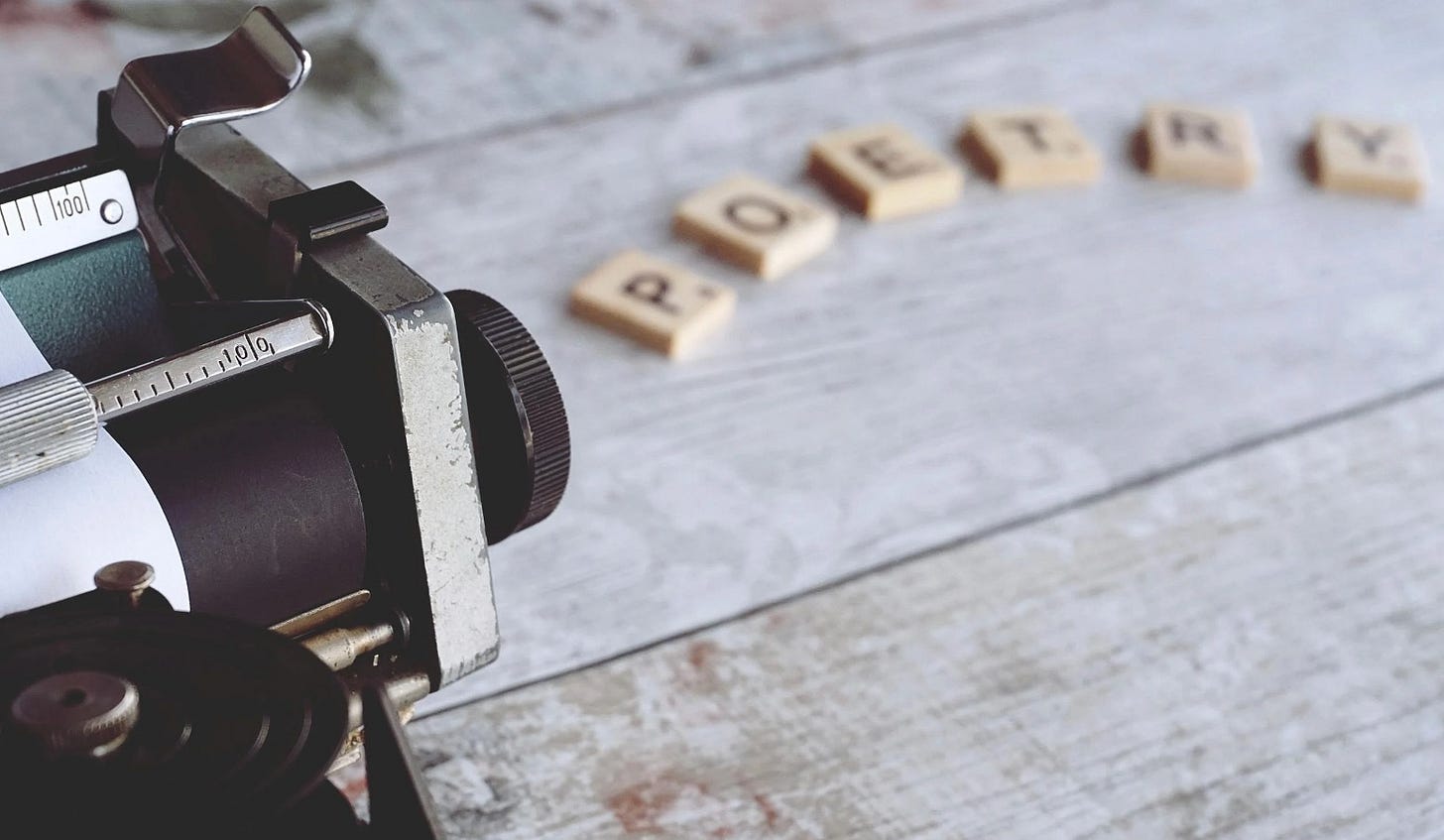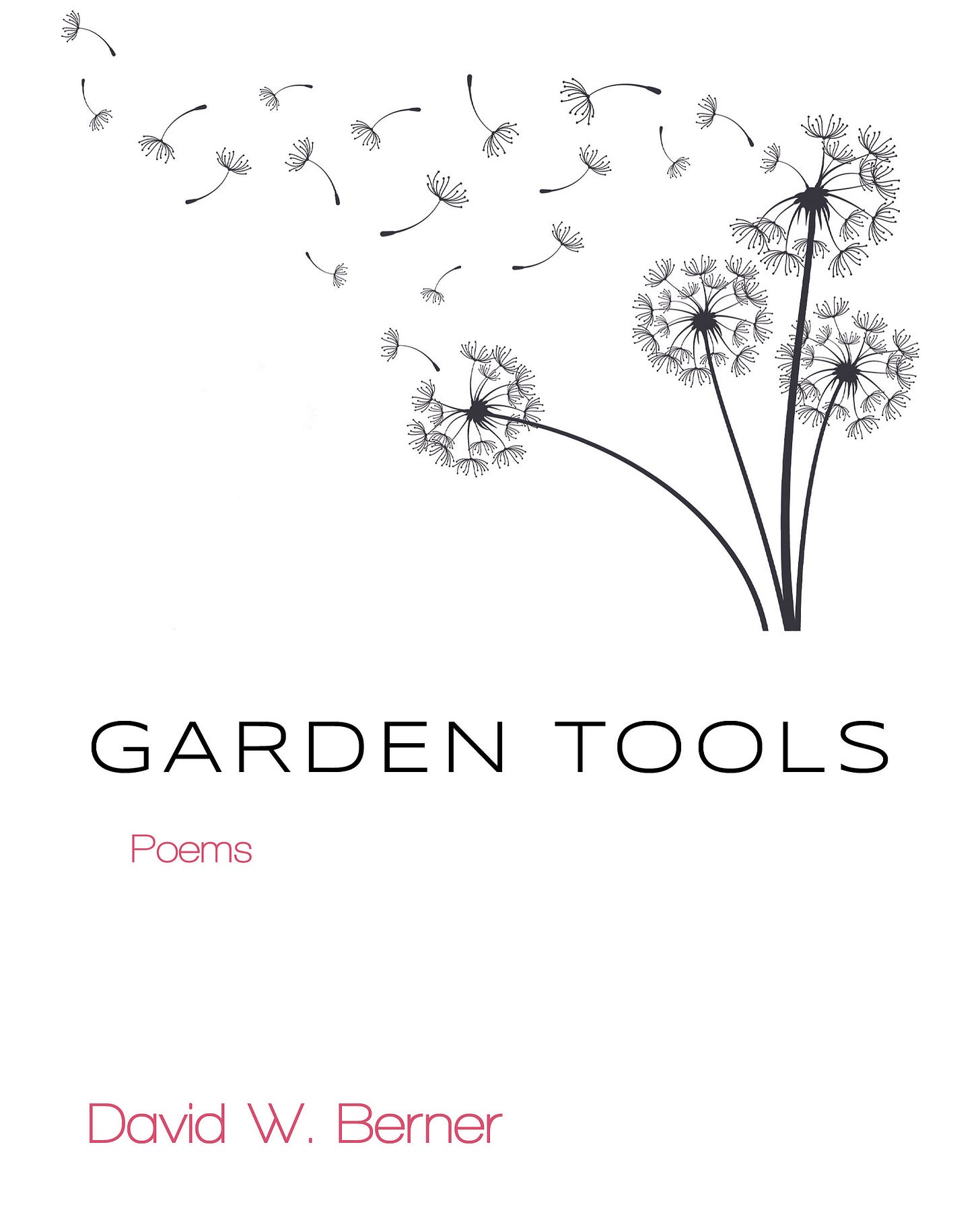As a teenager, my “poets” were the musicians of the day—Bob Dylan, Joni Mitchell, McCartney and Lennon. Their words rang out like chimes at a temple. I read all the lyrics on the backs of the record albums, over and over. I considered their meanings—overt and hidden. These “poets” never failed to thrill me. As a kid, I knew nothing about what one might call “traditional” poetry—other than what I may have read in English class, like Lord Byron or Keats or Shakespeare. I knew nothing of the great poetic legacy of the classics. I also knew nothing of the modern poets of my teenage years—Allen Ginsberg, Maya Angelou, or Ted Hughes. They all came later for me. I wasn’t ready for them in my teens. In my 30s, things changed.
It was then that I discovered Gil Scott Heron. Nothing awakened me more to the power of poetry than the groundbreaking work, “The Revolution Will Not Be Televised.” It sent me out looking for more poetry.
I rediscovered W.B. Yeats, found Frank O'Hara’s Lunch Poems, Jack Kerouac’s haikus, found Bill Collins’ accessibility, Patti Smith’s artistic foundations, Dylan Thomas’ wistfulness and dynamic observations, Gary Snyder’s awareness and mysticism, and saw the similarities to those songwriters who first introduced me to verse. The “formal” poets had a strong link to the musicians of my youth, and later a direct connection to some of the incredible lyricists of today—Jason Isbell, Gregory Alan Isakov, Sam Beam of Iron and Wine, Lucinda Williams, and others. All of this turned me on to others—Charles Bukowski, Wallace Stevens, William Carlos Williams, and the great street poet Julia Vinograd.
When I began writing books, many reviewers noted that they had found a poetic approach to the narrative, lyrical writing linked to a poetic sensibility. Maybe then, I thought, there was more poetry in my work than I had ever believed.
So, I started writing verse.
At first it was an exercise, a kind of writing meditation meant only to stretch the creative muscles. After many months, I posted a short poem I’d written online. It received more positive reaction than I expected. Was it good? I had no idea. But the experience did get me writing more poems on a regular basis. Soon, it became most every morning. Again, were they any good? No idea. After about a year, I gathered a bunch of poems together and sent them to poets I knew, people who could evaluate with a level beyond my sensitivities. I was surprised. The response was more positive than I had anticipated.
And so, I started writing more, editing more, gathering more. In time, I thought I had a good collection that I could offer again to any poet who would read. And in time, Garden Tools was born. I set out shopping the collection and at the same time having a few poems accepted and published in journals and online publications, giving me a bit more confidence. Maybe I could write poetry that would resonate, that struck a chord, that had relevance for readers and not just me?
Only one way to find out.
Finishing Line Press was willing to take on a writer who had never published a poetry collection before. The editors saw something in the work. I am grateful for that. And I am grateful for the poets who read my work and offered encouragement. And so, Garden Tools came to be.
What also came to life was the belief that aggressively reaching out beyond what you think you can do can awakened brand new experiences and artistic opportunities. The process reminded me that art many times comes from a tiny spark, an ember. It doesn’t come from big flashes or explosions, or knock-you-on-the-ground revelations. It comes in whispers. In dreams. It comes in a quiet morning, in a star-filled night. It comes with time.
Carl Sandburg famously said, “Poetry is an echo, asking a shadow to dance.” It’s the language that matters as one dances with emotion. But more than anything else, poetry is about keen observations, truth beyond fact. Former U.S. Poet Laureate Joy Harjo said, “When I began to listen to poetry, it’s when I began to listen to the stones, and I began to listen to what the clouds had to say, and I began to listen to others. And I think, most importantly for all of us, then you begin to learn to listen to the soul, the soul of yourself in here, which is also the soul of everyone else.”
That belief is everything when it comes to poetry.
I don’t claim to be an expert on poetry. Far from it. But I know what I like, what excites me, what enlivens my heart—Rilke, Rimbaud, Blake, Walt Whitman, Sylvia Plath, Emily Dickinson, Wordsworth. I’ve learned so much from them. I’m still learning. And if you think you are not what some call a “poetry person,” I would argue that all of us are poetry people when the time is right—when we lose a loved one, when we find ourselves in the middle of great joy or great sorrow, when we struggle and when we triumph, when life slaps us in the face, and when it settles on us like a cloud. The human experience evokes poetry. It is in all of us, living there in our souls and hearts. It just needs to emerge from behind the curtain.
I hope that you will read Garden Tools, but even more so, I hope you will read many, many poets, find what awakens your emotions and embraces you. The poetry that most resonates, I believe, is not highbrow nor academic, but the verse that sends a shiver inside, that makes you cry, that offers a laugh, that opens a chamber in your heart you never realized was there.
Before you set off to read one of the great nature poems of Mary Oliver or love poems of Pablo Neruda, consider the words of one of my favorite poets, Lawrence Ferlinghetti, who believed: "Poetry is eternal graffiti written in the heart of everyone.”
Yes, of everyone.
Garden Tools: Poems from Finishing Line Press now available for pre-order.
Click the book image or scan the QR Code.
David W. Berner is the author of several books of award-winning fiction and memoir. His novella, American Moon will be published by Regal House Publishing in 2026.
The price of a cup of coffee helps sustain my work. Thank you for supporting.








Thanks for putting into words what I cannot say about why I like, read and write poetry. I have always been a “closet poet”, scribbling and keeping the scribbles where only I could read them. Then one day in my 20s I got brave and entered a contest. I was shocked to receive an honourable mention. That got me started, and for the next few years I submitted to Little magazines and other contests and was surprised that people actually liked what I had written enough to publish it and even take first place in a number of contests. Yet as I moved into my more mature years, I stopped writing poetry completely. Only recently, as we began downsizing for retirement, did I discover a box full of my “scribblings”, I began reading them again. I decided some of them deserved more than to be left in a box, and having been married to a photographer over 40 years, I thought why not combine his beautiful photos with my poems? The result was the fulfilment of a dream I had had for us since we first got married. It matters little to us if anyone ever buys our books but our children now have a couple of lovely collections to read. Sure beats sifting through scribblings on scraps of foolscap in a moldy box.
By the way, I had to chuckle to myself as I read your piece and realized that the title of our book, “Where Shadows Dance” was based on Carl Sandberg’s statement “Poetry is an echo, asking a shadow to dance.”
May this post and GARDEN TOOLS inspire other closet poets to go digging through their own long forgotten boxes of poetry. Wishing you success,
Viga Boland